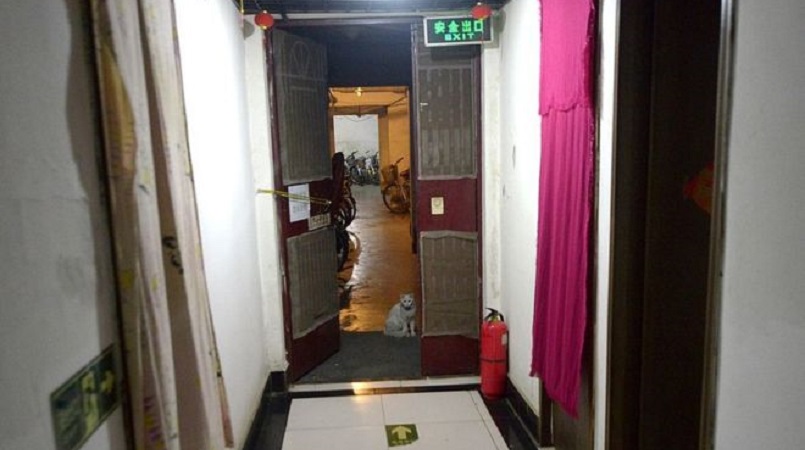
The recent discovery of around 400 people living underneath an upscale Beijing apartment complex has shone fresh light on the Chinese capital's housing crunch.
On Saturday, a state radio report highlighted the existence of an underground warren of windowless rooms - with only one emergency exit - at Julong Gardens.
The tenants are among an estimated one million people known as shuzu - or rat tribe - who live in subdivided bomb shelters and bunkers built under Beijing in the 1970s and 1980s.
Stark contrast
The China National Radio report (in Chinese) said that homeowners at Julong Gardens became suspicious when they began noticing more unfamiliar faces in their complex.
They eventually discovered the warren of hidden rooms behind a door in the basement of one of the complex's towers.
An underground space had been subdivided into worker dormitories - complete with kitchens and even a "smoking room" - and cramped single rooms.
The tenants were migrant workers, their living conditions a stark contrast to the aboveground residents of Julong Gardens, a spacious residential compound popular with wealthy expatriates.
It is unclear whether the underground homes were legal - authorities are reportedly investigating. China National Radio said the basement space was owned by the local government but was likely to have been subleased.
Authorities used to encourage the use of such spaces for housing and other purposes, but in recent years have cracked down and stopped granting permits as units proliferated and sparked safety concerns.
In 2015 authorities embarked on a massive eviction exercise with more than 120,000 "shuzu" kicked out for security reasons.
Relentless climb in rents
Many migrant workers and students turn to underground housing because of its cost, which according to some estimates can be as low as $20 (£16) a month for a dormitory room.
The trend comes amid a relentless climb in rental prices in Beijing, which was found to have the least affordable rental housing in the world last year.
One recent survey (in Chinese) found the average monthly rent in Beijing last year had climbed to about 4,550 RMB ($666; £523), about 60% more than 2010 figure.
But it is also because of China's household registration system called hukou, which ties a person's government benefits, including access to affordable housing, to their hometown.
Many migrant workers it difficult and costly to transfer their hukou to another city.
On microblogging network Sina Weibo, the Julong Gardens case sparked a mixture of resignation and exasperation.
"So why come to Beijing to squeeze in like this? I really don't understand," said one user.
"Beijing welcomes you (but get out if you don't have money)," joked another.
